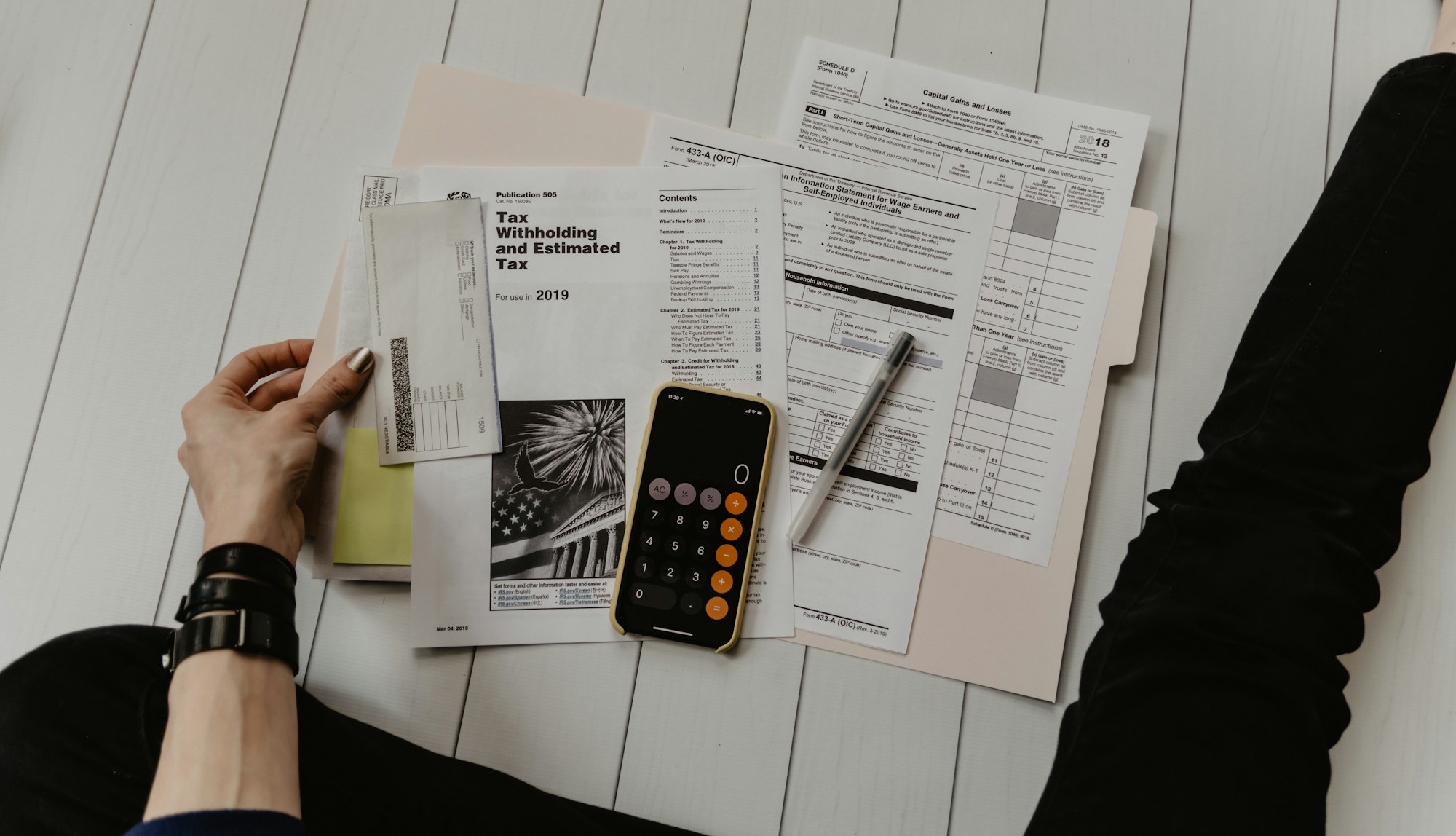A power of attorney is a legal document that designates a person or organization to act on your behalf in case you are not in a position to act. This person is called an agent or an attorney-in-fact. You are known as the principal. The agent assumes the legal authority to make decisions and enter into contracts on behalf of the principal as far as the Power of Attorney allows them. A power of attorney can be referred to as a living will and the authority it grants can be broad or specific.

There are many reasons why you may want to assign a power of attorney to an agent to act on your behalf. For most people, they do so in case they are incapacitated due to age or illness or disability. Absence or an extended period of time is also a common reason for those with business to administer. However, the Power of Attorney (POA) has to be made before any incapacitation as an incapacitated person cannot grant a power of attorney.
As an entrepreneur, you should have a business continuity plan that includes you not being there. Executing a POA gives the chance to appoint someone to make decisions on your behalf.
Anybody can be appointed as an agent in a Power of Attorney. You don't have to be an attorney or lawyer. In most of the cases, it should be someone close to you who would act in your best interest. This could be a spouse, family member, friend, or acquaintance.
There are many reasons why you'd want to have a POA in place. Unfortunately for many people, they wait until it's too late.
Table of Contents
• Reasons to have a Power of Attorney
• How to Draft a Power of Attorney
• Who to Choose as an Agent in a POA
• Role of the Agent/Attorney-in-Fact
• Revoking a Power of Attorney
• Children as their Parent's Attorneys-in-fact
Reasons to have a Power of Attorney
Everybody would benefit from having a Power of Attorney, especially one which is detailed and well written. If you wait till you need it, it will too late. A POA can only be written by one who is mentally and physically capable of doing it.
Before we go into the details of the reasons for you to want to execute a power of attorney, check out this overview on a POA by NavyJAGCorps:
Some common reasons why you'd want to have the Power of Attorney are:
Peace of Mind

A power of attorney document provides peace of mind for everybody involved, including the principal. It eases the burden of worrying about what will happen in case of incapacitation. In the absence of a POA, the court will have to intervene, which can be a costly and time-consuming affair. Your family and children knowing that everything will run smoothly in case of anything can be very reassuring. For the sake of your family, a POA is very important. Not having it will have dire consequences. Having a POA is akin to having a will or purchasing insurance. They ensure continuity.
Control over finances

Having a trusted person act on your behalf gives you control over your finances since it is assumed that this person will act on your best interests. This person preferably knows you and will respect your wishes.
A POA ensures your cultural and religious values will be respected

For some people, they fear what will happen if they get mentally ill, become incapacitated due to illness or are involved in an accident. During this period, you want your values and wishes to be respected. A POA will ensure this as your agent will communicate your wishes and follow through to make sure they followed. Some people wish to avoid procedures such as CPR.
Types of Power of Attorney
There are different types of POA depending on the duration and the tasks that a principal wishes the agent to perform.
Durable POA
A durable POA may either be general or specific. It ensures that once you are incapacitated, your appointed agent will continue acting on your behalf. For the general and specific POA, it ends once you become incapacitated. A durable POA will remain valid until the principal dies or revokes it before becoming incapacitated. You can have a look at this durable POA sample.
General POA
A general Power of Attorney is a comprehensive legal document that gives your appointed agent broad powers to act on your behalf. The agent can handle almost all tasks for you. These include financial transactions, paying bills, making medical decisions, signing contracts, buying and selling property. All POA ends when the principal dies. A general POA may end once the principal becomes incapacitated unless otherwise specified. It may also end if the principal decides to revoke it. Check out this brief explainer video below by eForms. It provides an overview of the process of executing a general power of attorney, choosing an agent and the fiduciary duty of an agent.
Limited/ Specific POA
A limited POA is referred to as such because it gives the agent or the attorney-in-fact the power to act on behalf of the principal for a particular purpose and a defined period of time. For instance, you give an agent the authority to sign certain documents on a specific date you are away. This is particularly useful if you are going on vacation.
Springing POA
A Springing POA is similar to a durable POA only that it comes into effect once you become incapacitated. The durable POA can go into force before incapacitation and proceed once the principal becomes incapacitated. Incapacitation should be clearly defined in the document to avoid any confusion.
Medical POA
This is a very specific POA that gives an agent the authority to make medical decisions on behalf of the principal. It is also known as a healthcare power of attorney in some parts of the United States. Some medical conditions may make one unable to express their wishes or unable to talk. The agent will make these decisions on their behalf. This must be executed while the principal is still in possession of their faculties. Check out this short video by the Cleveland Clinic to which shows how easily it is for you to execute a Medical POA before undergoing any treatment which can incapacitate you for any period of time:
How to Draft a Power of Attorney
- A power of attorney has to be written down. A few jurisdictions may accept oral POAs but the best practice is to have a detailed well-written document. This removes all ambiguity that may arise in the case of interpretation.
- The second consideration to make is to have the right format of the document. At this point, you have to choose the type of POA to draft based on your needs.
- Consider your jurisdiction and how the state laws say about how a POA should be drafted and filed. Even though anybody can draft a POA, a lawyer is better placed to advise.
- Correctly identify each party. This includes the principal, who is the creator of the POA and the attorney-at-fact/agent/s
- The authority delegated to the agent should be clearly defined. Even for general POA, it is good practice to define the authority delegated.
Who to Choose as an Agent in a POA

Your agent is the person who will be responsible for executing all the delegated tasks. It is thus crucial to have a person whom you can trust and who is loyal to you. An agent must be an adult of sound mind. A spouse or a close family member is often the most preferred case. However, there may be a case of looking beyond the family. If a family member subscribes to your values, it may be a good idea to have them as an agent. Otherwise, a close friend may be a better choice. Some people have two agents, a family member and a friend to act together.
Location is a significant consideration to make. An agent should be someone who can quickly get to where you are if the need be. A person who is in another continent may not be a very good choice. Limitations of distance may affect their ability to make the right choice.
Your nominated agent must be willing to take up the responsibility. You should request them and seek their approval before appointing them. They must understand what you ask from them. You may choose to pay them for their tasks. The compensation should be reasonable.
An agent should be someone highly organized and level headed and someone who can make a good decision even under pressure. They should be someone competent enough to perform the assigned responsibilities.
Most importantly, an agent should be able to follow your wishes, either expressed or inferred. To do this, they must have interacted with you to understand what you'd want to happen in certain scenarios.
Role of the Agent/Attorney-in-Fact
The agent of the role is a very important one that should never be taken very seriously. The principal should carefully choose the agent based on their interactions with them. If requested to be an agent, you should take this role with the seriousness it deserves. The agent should read all his responsibilities clearly. If they are unsure, they should seek clarifications from either the principal or a lawyer.

The agent should follow the wishes of the principal as detailed in the power of attorney document. It is also expected that they should be expected to act in good faith for any scenario not enumerated in the document. For all transactions, proper records should be kept as a good practice in case of future reference. If the agent doesn't follow the wishes of the principal, they may be charged in a court of law for breach of fiduciary duty.
Revoking a Power of Attorney
A revocation of a power of attorney should be in writing and served upon the agent and any other party who may have recognized the agent's powers to enter into contracts for and on behalf of the principal. If you have recorded your POA in any office, as the law in some jurisdictions demands, then you should record the revocation as well. There are many reasons why you may need to revoke a power of attorney.
- Change in relationship with the agent
- Change of mind by the principal
- Death of the agent
- Incapacity/illness/ of the agent
- Unavailability of the agent to perform his/her duties
As long as the principal understands the consequences of revoking the POA, the revocation can be executed. eForms explains the revocation of a POA succinctly in this 3-minute video.
Children as their Parent's Attorneys-in-fact
Many parents choose their adult children as their agents in their power of attorney. This is because in most cases, the spouse is old as well, so it is safer to have children as they are relatively young. As parents age, the burden of managing their financial affairs and making medical decisions becomes an increasingly difficult. As the risk of incapacitation increases with old age, adult children can come in to help their parent manage their affairs. It is assumed that the children understand what their parents' wishes are and that they will obey them. If this is not the case, parents should not feel compelled to nominate their children as agents.
In the case where there is more than one child, deciding to choose one is not an easy one. The nominated one should be able to make decisions that take into account the wellbeing of the whole family. If the agent makes a wrong decision, it may lead to family conflicts.

All children are different. When choosing the agent, consider the abilities of every child and whether they are capable of performing the assigned responsibilities. You may create several limited/specific POAs for each child. For instance, one child may deal with financial affairs while the other one deals with medical matters.
In some cases, children may need to persuade their parents to have a power of attorney. This is challenging as some parents are reluctant to grant their affairs to their children. Children may be worried about what will happen if their parents become incapacitated. One point to remember is that each parent needs their POA. They can't share one as a couple.
Power of Attorney FAQs
When does a power of attorney take effect and when does it end?
A power of attorney takes effect upon the specified date in the document or when the principal becomes either physically or mentally incapacitated. It ends upon the expiry of the specified date or the death of the principal. Even if a child has a power of attorney for the parent, they can no longer exercise this power upon the parent's death.
How does the agent determine the principal is incapacitated?
Incapacity is a broad and important legal term. Many legal instruments and documents are based on it. It is thus essential to get it right. The definition may change based on different jurisdictions. In general terms, incapacitation is when a person is unable to manage their affairs. It can either be physical or mental incapacitation. Some conditions such as dementia, mental illness may lead to a conclusion of incapacitation. A person in a coma is physically incapacitated.
Can I have multiple agents in my Power of Attorney?
Yes, multiple agents are allowed. One can act in alternate to the other, or they can act jointly depending on what the principal stipulated.
Should an agent get paid for their work?
It depends on the jurisdiction and the principal wishes. In most cases, the agent or attorney-in-fact is someone close, either a friend or a family member. They will be glad to help. However, they are legally allowed to claim expenses also reasonable compensation for their time.
Is a Power of Attorney the same as a will?
A power of attorney is only valid until when the principal dies. After that, the agent loses the authority to act on behalf of the deceased. It is, therefore, vital to have a will that will stipulate how your estate will be managed and inherited.
Is a lawyer required to prepare a power of attorney?
No, anybody can prepare a power of attorney. The principal should sign it in the presence of a notary. However, if you are giving sweeping powers to an agent to act on your behalf on weighty matters, it would be best to consult a lawyer.
Bottomline

As an entrepreneur, there is always something that requires our attention. The business side of things tends to take all our time. What we never really do is taking time to think of what would happen if we were to be incapacitated. Your business may suffer or your dependents may be adversely affected. Having a Power of Attorney can help limit the disruption that may occur in such a scenario. In a business setting, your partners are a good choice for a specific POA to help seamlessly manage your enterprise. For family matters, your spouse, a close friend or relative as an agent usually works best. Executing a POA will help leave you at peace that your interests are safeguarded by someone you can trust.


